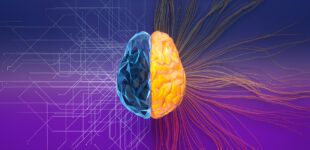June 19, 2025
AI is transforming entry-level tech jobs. For example, it is automating routine coding tasks while opening the door for more creative, collaborative roles. Universities are introducing AI programs and interdisciplinary learning to help students adapt to a changing workplace.
As artificial intelligence (AI) continues to revolutionize the tech landscape, the role of entry-level programming and coding jobs is undergoing a profound transformation. Rather than eliminating jobs altogether, AI is reshaping the nature of work in software development, especially for recent computer science graduates entering the field.
The Changing Face of Tech Jobs
AI is increasingly capable of automating routine coding tasks like debugging and basic software development. These are the very tasks that have traditionally defined the first jobs for many computer science graduates — junior developers, quality assurance testers and support engineers. As these roles become more intertwined with AI tools, the expectation is not that jobs will disappear, but that they will evolve.
Instead of focusing on repetitive tasks, developers will shift toward responsibilities that demand creativity, critical thinking and collaboration. Elements such as software architecture, user interface design, ethical computing and system integration are rising in prominence. For example, it used to be standard for a software engineer to produce 10 lines of debugged code per day. Today, with the aid of tools, that number is significantly higher. These tools enhance productivity and change how developers approach problem-solving, making foundational knowledge even more essential.
What Current Students Say
Many students are already preparing for the impact of this shifting job market.
A January 2024 survey by Inside Higher Ed and College Pulse, involving 1,250 students from 49 two- and four-year colleges, revealed that AI is significantly influenced some students’ academic and career trajectories.
- 14% of students reported that AI has greatly impacted their choice of study, with an additional 34% indicating some influence. This effect is more pronounced among newer students, indicating the increasing impact of AI on student attitudes.
- only 7% of arts and humanities students felt influenced by AI, versus 22% of those in interdisciplinary majors.
- 11% of students stated that AI has significantly shaped their career aspirations, with an additional 31% noting some influence.
- nearly three-quarters of all respondents expressed a desire for their institutions to prepare them for AI integration in the workplace, underscoring a growing demand for AI-focused education and training across various fields.
Preparing Students for a Shifting Job Market
With AI transforming the early stages of tech careers, students must arm themselves with a broader set of skills to remain competitive. That means building AI literacy, sharpening problem-solving abilities and developing essential soft skills like communication and adaptability. Domain knowledge — in areas like healthcare, finance, or energy — paired with computer science skills, will make graduates uniquely valuable in an increasingly interdisciplinary tech world.
Staying current through certifications, personal projects and immersion in emerging technologies will be key to long-term success.
How Institutions Are Responding
Universities are adapting curricula to match the evolving demands of the tech industry. For example, new programs have been introduced to reflect the growing importance of AI and interdisciplinary learning:
- Minors in AI, open to all undergraduates to provide access to a broad understanding of AI to any undergraduate major.
- An AI concentration for computer science majors that delves into the inner workings of AI, machine learning concepts and AI tools.
- A master’s degree in data science.
- A new course dedicated to the ethical and societal impacts of AI.
Real-world experience is also emphasized through internships, co-ops and partnerships with industry to ensure students are job-ready upon graduation. Advisory boards with industry professionals help guide curriculum updates to align with rapidly changing job requirements.
The Reality of Tech Careers Today
While the tech job market may be cooling in some sectors due to automation and economic uncertainty, computer science remains a lucrative field, especially for those with specialized skills in AI, cybersecurity, data engineering and cloud computing.
AI is not just replacing old roles — it’s creating new ones. Consider how AI-powered drones are revolutionizing agriculture by monitoring crops, diagnosing diseases using AI aided image recognition and classification models and deploying targeted interventions. These emerging applications are opening doors to roles that did not exist a few years ago.
Challenges for Educators in a Fast-Moving World
One of the biggest hurdles for educators is keeping pace with the speed of change. Curricula must balance timeless fundamentals like algorithms and data structures with ever-evolving technologies. Institutions also face pressure to provide access to modern tools and platforms and to ensure that faculty receive ongoing professional development.
Educators must foster a mindset of lifelong learning and agility, not only in students but in themselves. By cultivating strong ties to industry and embedding forward-thinking strategies into their programs, many schools are helping to future-proof their graduates.
About the Author: Babak Beheshti is an IEEE Senior Member and chair of the IEEE Public Visibility Committee. He is a professor and Dean of the College of Engineering and Computing Sciences at New York Institute of Technology.






 Meaningful Momentum or Running in Place?
Meaningful Momentum or Running in Place? AI Through Our Ages
AI Through Our Ages Liquid Infrastructure: Our Planet's Most Precious Resource
Liquid Infrastructure: Our Planet's Most Precious Resource The Impact of Technology in 2025
The Impact of Technology in 2025 Quantum and AI: Safeguards or Threats to Cybersecurity?
Quantum and AI: Safeguards or Threats to Cybersecurity? Why AI Can't Live Without Us
Why AI Can't Live Without Us Bits, Bytes, Buildings and Bridges: Digital-Driven Infrastructure
Bits, Bytes, Buildings and Bridges: Digital-Driven Infrastructure Impact of Technology in 2024
Impact of Technology in 2024 Emerging AI Cybersecurity Challenges and Solutions
Emerging AI Cybersecurity Challenges and Solutions The Skies are Unlimited
The Skies are Unlimited Smart Cities 2030: How Tech is Reshaping Urbanscapes
Smart Cities 2030: How Tech is Reshaping Urbanscapes Impact of Technology 2023
Impact of Technology 2023 Cybersecurity for Life-Changing Innovations
Cybersecurity for Life-Changing Innovations Smarter Wearables Healthier Life
Smarter Wearables Healthier Life Infrastructure In Motion
Infrastructure In Motion The Impact of Tech in 2022 and Beyond
The Impact of Tech in 2022 and Beyond Cybersecurity, Technology and Protecting Our World
Cybersecurity, Technology and Protecting Our World How Technology Helps us Understand Our Health and Wellness
How Technology Helps us Understand Our Health and Wellness The Resilience of Humanity
The Resilience of Humanity Harnessing and Sustaining our Natural Resources
Harnessing and Sustaining our Natural Resources Creating Healthy Spaces Through Technology
Creating Healthy Spaces Through Technology Exceptional Infrastructure Challenges, Technology and Humanity
Exceptional Infrastructure Challenges, Technology and Humanity The Global Impact of IEEE's 802 Standards
The Global Impact of IEEE's 802 Standards Scenes of our Cyber Lives: The Security Threats and Technology Solutions Protecting Us
Scenes of our Cyber Lives: The Security Threats and Technology Solutions Protecting Us How Millennial Parents are Embracing Health and Wellness Technologies for Their Generation Alpha Kids
How Millennial Parents are Embracing Health and Wellness Technologies for Their Generation Alpha Kids Space Exploration, Technology and Our Lives
Space Exploration, Technology and Our Lives Global Innovation and the Environment
Global Innovation and the Environment How Technology, Privacy and Security are Changing Each Other (And Us)
How Technology, Privacy and Security are Changing Each Other (And Us) Find us in booth 31506, LVCC South Hall 3 and experience the Technology Moon Walk
Find us in booth 31506, LVCC South Hall 3 and experience the Technology Moon Walk Virtual and Mixed Reality
Virtual and Mixed Reality How Robots are Improving our Health
How Robots are Improving our Health IEEE Experts and the Robots They are Teaching
IEEE Experts and the Robots They are Teaching See how millennial parents around the world see AI impacting the lives of their tech-infused offspring
See how millennial parents around the world see AI impacting the lives of their tech-infused offspring Take the journey from farm to table and learn how IoT will help us reach the rising demand for food production
Take the journey from farm to table and learn how IoT will help us reach the rising demand for food production Watch technical experts discuss the latest cyber threats
Watch technical experts discuss the latest cyber threats Explore how researchers, teachers, explorers, healthcare and medical professionals use immersive technologies
Explore how researchers, teachers, explorers, healthcare and medical professionals use immersive technologies Follow the timeline to see how Generation AI will be impacted by technology
Follow the timeline to see how Generation AI will be impacted by technology Learn how your IoT data can be used by experiencing a day in a connected life
Learn how your IoT data can be used by experiencing a day in a connected life Listen to technical experts discuss the biggest security threats today
Listen to technical experts discuss the biggest security threats today See how tech has influenced and evolved with the Games
See how tech has influenced and evolved with the Games Enter our virtual home to explore the IoT (Internet of Things) technologies
Enter our virtual home to explore the IoT (Internet of Things) technologies Explore an interactive map showcasing exciting innovations in robotics
Explore an interactive map showcasing exciting innovations in robotics Interactively explore A.I. in recent Hollywood movies
Interactively explore A.I. in recent Hollywood movies Get immersed in technologies that will improve patients' lives
Get immersed in technologies that will improve patients' lives